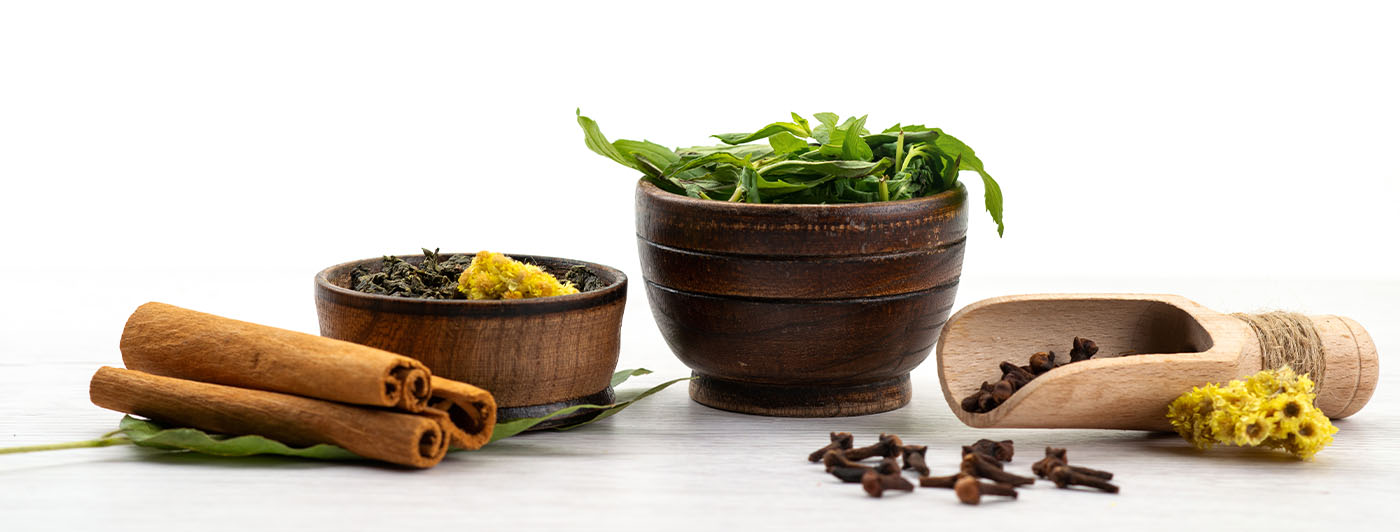What if the secret to glowing skin, better sleep, sharper focus, and stronger immunity was growing in your backyard — and had been used effectively for thousands of years?
For thousands of years, Ayurveda has tapped into nature’s abundant pharmacy to heal, balance, and rejuvenate the body. At the heart of this ancient Indian system of medicine lies a group of sacred botanicals known as ayurvedic plants. These are no ordinary herbs — they’ve been studied, revered, and used across generations for their profound effects on health and vitality.
In today’s world of synthetic solutions and complex prescriptions, many people are rediscovering the holistic power of these ayurvedic plants. Whether you’re looking to enhance your immunity, boost energy, reduce stress, or support skin and digestive health, these plant-based remedies can offer lasting results. Backed by centuries of use and a growing body of modern research, let’s dive into 10 of the most powerful ayurvedic plants and what they can do for your well-being.
Discover the Healing Power of Ayurvedic Plants
Unlike one-size-fits-all approaches, Ayurveda believes in customization — understanding an individual's constitution (dosha) and recommending specific ayurvedic plants that harmonize the body and mind. This makes Ayurvedic medicine incredibly versatile and highly personalized.
The ayurvedic plants covered below aren’t just traditional names — they are being revalidated by science for their antioxidant, anti-inflammatory, adaptogenic, and restorative properties. They support everything from gut health and immunity to brain function and hormonal balance.

1. Ashwagandha (Withania somnifera)
Ashwagandha, one of the most celebrated ayurvedic plants, is an adaptogen — a plant that helps the body manage stress. It is known to lower cortisol levels, combat fatigue, enhance stamina, and support restful sleep. For those into fitness or high-performance routines, it also aids in muscle recovery and endurance. Ashwagandha is often used in energy-boosting tonics and is especially useful for those who follow high protein foods diets for muscle gain.
Recent studies have shown its positive effect on reducing anxiety and supporting hormonal balance, making it one of the most versatile ayurvedic plants in the modern wellness space.
2. Tulsi (Ocimum sanctum)
Also known as Holy Basil, Tulsi is revered in Indian households for both its spiritual and medicinal value. As one of the cornerstone ayurvedic plants, Tulsi is particularly effective for respiratory health, immunity, and detoxification. It’s rich in antioxidants and helps regulate blood sugar and cholesterol levels.
Drinking Tulsi tea is a daily ritual in many Ayurvedic homes. It has antimicrobial properties and helps combat common colds, cough, and flu. Its soothing action also makes it helpful for those prone to anxiety or nervous tension.
3. Triphala (Amla, Haritaki, Bibhitaki)
Triphala is a legendary blend of three powerful fruits — Amalaki, Haritaki, and Bibhitaki — all potent ayurvedic plants in their own right. This trifecta promotes digestion, detoxifies the colon, supports healthy weight, and improves skin clarity.
Rich in antioxidants, especially Vitamin C, Triphala is also considered one of the best natural antioxidant fruits. It supports gut microbiota balance and is often used in detox teas and Ayurvedic cleansing rituals.
4. Brahmi (Bacopa monnieri)
If you’re looking for mental clarity and sharper memory, Brahmi is the ayurvedic plant for you. Known for its nootropic (brain-enhancing) properties, Brahmi supports cognitive functions such as memory retention, focus, and learning.
It is often prescribed in Ayurveda to students, professionals, and those experiencing mental fatigue or brain fog. Brahmi also strengthens the nervous system and is known to reduce anxiety without the drowsiness often associated with conventional medications.
5. Neem (Azadirachta indica)
Neem is known as nature’s pharmacy due to its wide range of medicinal applications. As one of the most potent ayurvedic plants, Neem is antifungal, antibacterial, antiviral, and anti-inflammatory. It is primarily used to purify the blood and treat skin disorders.
Applied externally or consumed internally, Neem supports skin health, helps in acne management, and is often recommended in Ayurvedic texts as one of the vitamin E foods for skin due to its skin-renewing effects. It’s also useful for maintaining oral hygiene and regulating blood sugar.
6. Guggul (Commiphora mukul)
Guggul is a resin obtained from the Mukul tree and is best known for its cholesterol-lowering properties. In Ayurveda, it is considered a rejuvenator and is frequently used to treat obesity, arthritis, and metabolic disorders.
This ayurvedic plant is a powerful ally for cardiovascular health and supports the thyroid gland. Its anti-inflammatory properties make it beneficial for people with joint pain and swelling. Guggul also helps in fat metabolism and is used in several weight management formulations. It is particularly effective when paired with dietary adjustments, especially for individuals transitioning from high calorie foods to more balanced, nutrient-dense meals during a wellness regimen.
7. Shatavari (Asparagus racemosus)
A cornerstone ayurvedic plant in women’s health, Shatavari balances hormones, supports reproductive health, and boosts lactation. Its cooling, nourishing, and adaptogenic properties make it ideal for managing PMS, menopause, and stress.
Shatavari is also considered a mild aphrodisiac and is used in tonics for vitality. Combined with plant protein sources, it can support female athletes or active women looking for holistic recovery.
8. Guduchi (Tinospora cordifolia)
Guduchi, or Giloy, means “the one who protects the body from diseases.” It’s a powerhouse immune booster and one of the most recommended ayurvedic plants during seasonal changes and fevers.
Its adaptogenic and detoxifying qualities help balance all three doshas. Guduchi also supports liver health, improves energy levels, and is often used alongside other ayurvedic plants in formulations for post-illness recovery.
9. Amalaki (Emblica officinalis / Amla)
Amla, or Indian gooseberry, is rich in Vitamin C and essential minerals, making it an immunity-boosting ayurvedic plant par excellence. Amla improves digestion, boosts collagen production, and supports vision and hair health.
It also aids calcium absorption, making it a natural partner to foods rich in calcium and vitamin D. Amla is an excellent rejuvenator and is used in Rasayanas (Ayurvedic longevity tonics).
10. Licorice (Glycyrrhiza glabra)
Licorice root is sweet to taste and sweet in its benefits. In Ayurveda, it is known for its demulcent (soothing) and anti-ulcer properties. It supports adrenal function, reduces inflammation, and protects mucous membranes — especially useful for people suffering from acid reflux or throat irritation.
It’s also a natural adaptogen and helps balance blood sugar levels. When taken as a tea or powder, it blends well with plant based protein powder for a calming, digestion-friendly post-workout shake.
Ayurvedic Plants in a Modern Lifestyle
What makes ayurvedic plants especially powerful is their ability to adapt to modern lifestyles. They can be incorporated into everyday routines with ease — teas, capsules, powders, oils, or infused in meals. They’re also vegan, sustainable, and fit seamlessly into plant-based diets.
For instance, many health-conscious individuals blend herbs like Ashwagandha or Brahmi with plant protein shakes to support mental focus and physical strength. These combinations can rival the best plant based protein strategies used in holistic nutrition.
If you follow a vegetarian or vegan diet, and often worry about nutrient deficiencies, pairing ayurvedic plants with vitamin b12 vegetables, high calorie foods, and high protein foods can help round out your nutrition.
Final Thoughts
As more people seek clean, sustainable wellness options, the world is turning back to the healing power of ayurvedic plants — not just as ancient remedies, but as essential tools for modern, preventive health.
These plants don’t just treat symptoms — they restore balance, boost energy, improve sleep, enhance digestion, and support glowing skin and sharp cognition. Whether it’s Amalaki for gut health, Tulsi for immunity, or Shatavari for hormone balance, each herb works with your body’s natural rhythms.
And the best part? They integrate seamlessly into your lifestyle. Add Amla to your smoothie, brew a cup of Tulsi tea, or combine adaptogens like Ashwagandha with your plant protein shake for a powerful post-workout boost.
Ready to take a more natural path to health? Start small. Pick one or two ayurvedic plants and build a simple daily ritual around them. You’ll be amazed at the difference ancient wisdom can make.
Frequently Asked Questions
1. Which plants are commonly used in Ayurveda?
Ayurveda relies on powerful medicinal plants like Ashwagandha, Tulsi, Neem, Brahmi, Amla, and Turmeric. These herbs are used to support immunity, reduce stress, improve digestion, and promote overall wellness.
2. Which plant is known as the king of Ayurveda?
Ashwagandha is often called the “King of Ayurveda” due to its wide-ranging benefits. It helps reduce stress, balance hormones, increase energy levels, and boost immunity—making it a cornerstone in Ayurvedic healing.
3. Which medicinal plant is considered the best in Ayurveda?
Turmeric is one of the most valued medicinal plants in Ayurveda. Known for its powerful anti-inflammatory and antioxidant properties, it supports joint health, skin clarity, digestion, and overall detoxification.
4. What are Ayurvedic herbs and how are they used?
Ayurvedic herbs are natural plant-based remedies used to balance the body’s doshas—Vata, Pitta, and Kapha. Common herbs like Triphala, Shatavari, and Brahmi are used to support digestion, immunity, mental clarity, and vitality.
5. Which Ayurvedic herb is best for glowing skin?
Neem is highly recommended in Ayurveda for clear, healthy skin. It helps treat acne, purifies the blood, reduces inflammation, and promotes a natural glow. Turmeric, Aloe Vera, and Manjistha are also beneficial for skin health.












